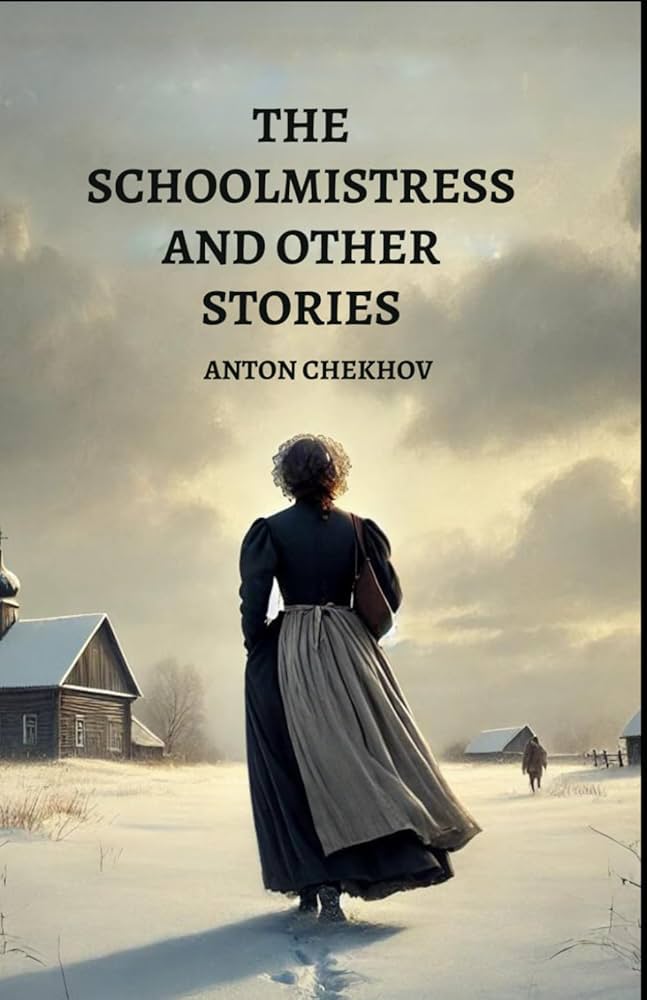SMALL FRY
bySmall Fry begins with Nevyrazimov hunched over his desk, trying to compose a simple Easter greeting while the room offers him nothing but the sound of footsteps and the scuttling of a cockroach. The quiet around him is not peace but a kind of dull weight pressing against his spirit. He knows that beyond the walls, the world is full of light, church bells, and people in motion, all caught up in the warmth of celebration. His pen moves slowly, as though even his thoughts are stuck in the same dull loop as his daily life. Each word he writes carries the hesitation of someone who feels disconnected from joy. He is a man aware of the spring beyond the glass, but trapped in winter within.
The chimes in the distance remind him of what he’s missing, and they bring more pain than comfort. Easter should be a time of renewal, yet for Nevyrazimov, it highlights everything unfulfilled. He thinks back to choices he’s made, to missed chances and paths never taken, and he blames both himself and the system. The poverty of his environment reflects his own mental landscape—dry, sparse, and full of longing. Even the presence of Paramon, the porter, offers little reprieve. A shared word or moment with him only reminds Nevyrazimov how rare human connection has become in his life. Though he smiles briefly, the weight of his circumstances returns almost immediately.
His contemplation drifts into uncomfortable territory as he imagines how someone like him might steal or betray to break free. But these aren’t real plans—they’re more like symptoms of despair, flickering in the shadows of his routine thoughts. He does not act on them, but their presence shows just how suffocating his surroundings have become. The loneliness is not loud, but it’s constant. There’s no escape, not because he’s physically trapped, but because every direction seems equally bleak. His station in life feels fixed like a piece of furniture in that office—unnoticed, unchanged, and slowly fading.
Even the smallest joys, such as the quiet rhythm of bells or the scent of spring air, cannot touch him for long. They tease him with what others have and he doesn’t. His environment has taught him to expect little, and even dreams come with guilt. Yet, beneath the weariness, there is a flicker of recognition that he once had different hopes. The man he once was—curious, ambitious, maybe even kind—still lingers somewhere deep inside, but is muffled by the daily grind and the invisibility that comes with being “small fry.” In these moments, his pain is not loud but deeply human.
It becomes clear that Nevyrazimov is not bitter because he lacks wealth, but because he lacks meaning. His labor feels useless, his opinions unheard, and his presence unnoticed. What cuts deepest is not hunger or cold, but the certainty that he could disappear and nothing in the world would change. This sense of insignificance is what slowly carves away his spirit. He doesn’t crave fame or fortune—he simply wants to matter to someone, to be seen as more than a cog in the machine. But in his world, even that feels like too much to ask.
By the end of the day, nothing changes. Nevyrazimov folds the letter with care and prepares to leave the office, knowing that his moment of hope has already slipped away. Outside, the world remains beautiful and alive, but he walks through it as though under a cloud. The office will still be there tomorrow, waiting like a cage. “Small Fry” is not just a story about poverty; it’s a story about invisibility, and about how the absence of purpose can dull even the brightest spirit. The tragedy is not in what Nevyrazimov does—but in all he cannot bring himself to do.

